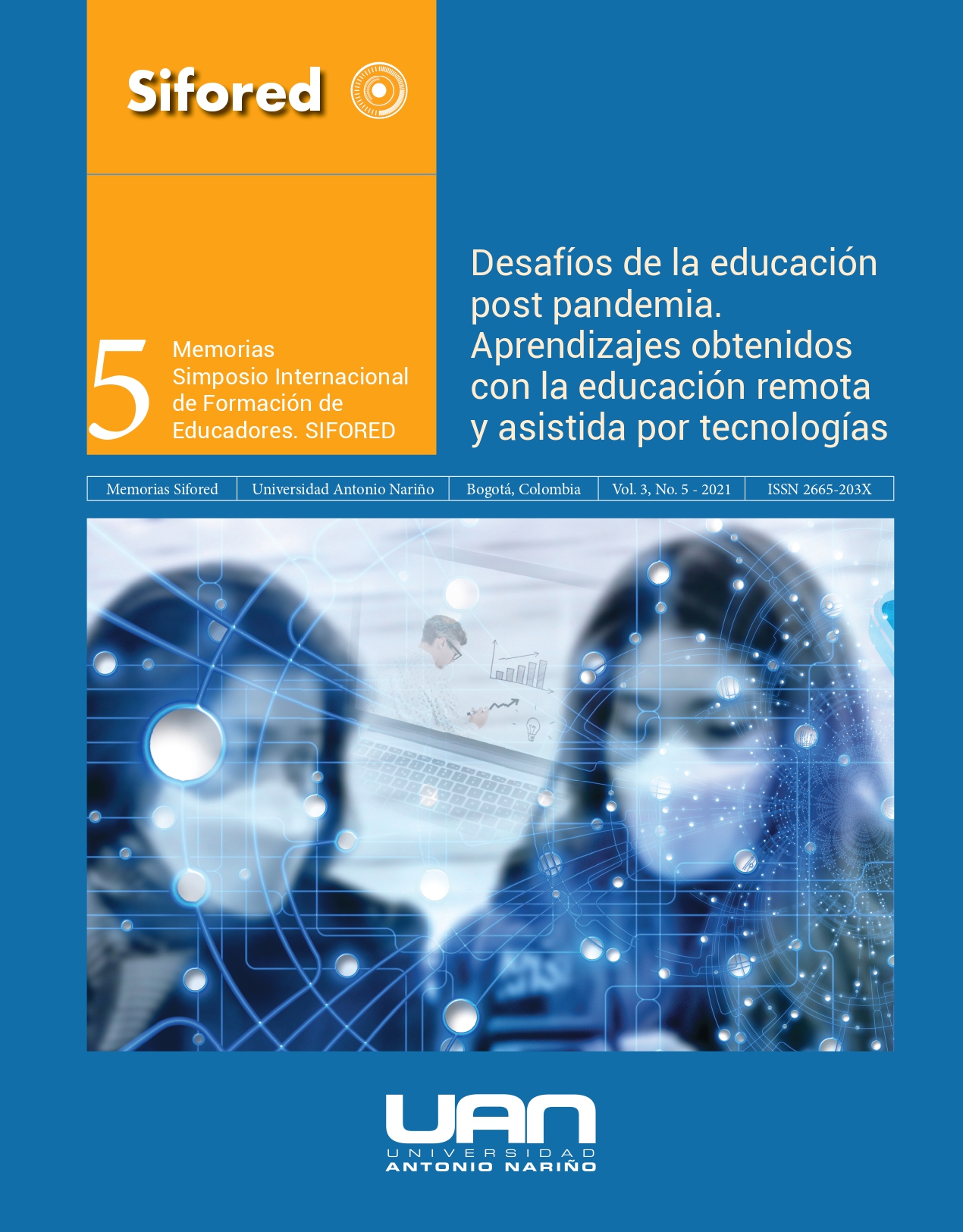Distinción entre conocimiento léxico y vocabulario en la didáctica del inglés. Revisión bibliográfica
Keywords:
Learning, Acquisition Lexical competence, English Language, SemanticsAbstract
This article makes a bibliographic review about the concept of lexical knowledge and vocabulary in the recent literature of the didactics of English. Methodology: a bibliographic review was carried out based on the search for materials in the Google Scholar search engine, in the Dialnet, Scielo and Redalyc databases, and in the ResearchGate academic network. Results: 30 articles published in the period 2016 to 2021 in indexed journals and 10 master's and doctoral theses are analyzed, with 30% of the materials being in English and the remaining 70% in Spanish. Two trends are identified when it comes to addressing lexical knowledge and vocabulary, which affect the way English didactics are developed. Conclusions: the importance of distinguishing between the concept of lexical knowledge and that of vocabulary is established, being that the latter refers to understanding the meanings of a word and is evaluated from the volume of words, while lexical knowledge focuses on the contextual meaning and placement of a word in the particular linguistic structure of the English language.
Downloads
References
Albrechtsen, D., Haastrup, K., y Henriksen, B. (2008). Vocabulary and writing in a first and second language: processes and development. Hampshire: Palgrave Macmillan.
Aguilera, R. (2018). Principales enfoques empleados en la enseñanza-aprendizaje del vocabulario en inglés con fines específicos. Universidad y Sociedad, 10, 15-24. Recuperado de http://rus.ucf.edu.cu/index.php/rus Estrada, X (2014). El conocimiento lexical del inglés en la expresión oral de los estudiantes del Instituto Charlotte English School durante el año 2013. Proyecto del Trabajo de Grado presentado como requisito parcial para optar por el Título de Licenciada en Ciencias de la Educación mención Plurilingüe Italiano. Carrera de Plurilingüe. Quito: UCE. 68 p.
García, M. (2004). La enseñanza del léxico del español como lengua extranjera. Resultados de una encuesta sobre la metodología aplicada en el aula. Obtenido de marcoele.com: http://marcoele.com/revista/index.php/marcoele/article/view/1/1
Encabo, E., y López, A. (2012). Didáctica de la lengua. Murcia: Universidad de Murcia.
Luceño Campos, J. L. (1994). Didáctica de la lengua española. Alcoy: Marfil.
Marco Común Europeo de Referencia para las lenguas: Aprendizaje, Enseñanza, Evaluación (2002). Consejo de Europa; Ministerio de Educación, Cultura y Deporte. Instituto Cervantes para la traducción en español. Recuperado de http://cvc.cervantes.es/obref/marco/
Mostafa, J. E., y Esmat, B. (2017). Reliable predictors of reduced redundancy test performance: The interaction between lexical bonds and test takers’ depth and breadth of vocabulary knowledge. Language Testing, 35(1), 121-144.
Molina, P; Atiénzar O; y Aguilera, R. (2018). Principales enfoques empleados en la enseñanza-aprendizaje del vocabulario en inglés con fines específicos. Revista Universidad y Sociedad, 10(1), 15-24. Epub 02 de marzo de 2018. Recuperado en 07 de octubre de 2021, de http://scielo.sld.cu/scielo.php?script=sci_arttext&pid=S2218-36202018000100015&lng=es&tlng=es.
Nation, P. y Beglar, D. (2007) A vocabulary size test. The Language Teacher, 31(7), 9-13. (Check Publications on Paul Nation’s web site for current information on publications).
Nation, P. y Meara, P. (2010). Vocabulary. En N. Schmitt (Ed.), An introduction to applied linguistics (pp. 34-52). New York: Edward Arnold.
Pauwels, P. (2018). Review of Stuart Webb and Paul Nation. (2017) How Vocabulary is Learned. ITL – International.
Scrivener, J. (2011). Learning teaching. The essential guide to English language teaching. MacMillan books for teachers.
Sanhueza C., Ferreira C, y Sáez C.(2018). Desarrollo de la competencia léxica a través de estrategias de aprendizaje de vocabulario en aprendientes de inglés como lengua extranjera. Lexis, 42(2), 273-326. Recuperado a partir de http://revistas.pucp.edu.pe/index.php/lexis/article/view/20570 Oramas E. (2020). Herramientas metodológicas para desarrollar la competencia léxica de los estudiantes de interpretación /. ISLAS, 62(195),122–131. Recuperado de http://islas.uclv.edu.cu/index.php/islas/article/view/1126 Torres, E. (2020). Herramientas metodológicas para desarrollar la competencia léxica de los estudiantes de interpretación / Methodological tools to develop the lexical competence in students of Interpreting. ISLAS, 62(195), pp. 122–131. Recuperado a partir de http://islas.uclv.edu.cu/index.php/islas/article/view/1126 Webb, S. y Nation, P. (2017); Laufer y Goldstein (2004) Incidental vocabulary learning. En S. Webb (Ed.), The Routledge Handbook of Vocabulary Studies, pp. 225-239 [Edición para Kindle]. Taylor and Francis. https://doi.org/10.4324/9780429291586- 15
Downloads
Published
-
Abstract1089
-
PDF (Español)1132
How to Cite
Issue
Section
License

This work is licensed under a Creative Commons Attribution-NonCommercial-ShareAlike 4.0 International License.


 Portal de Ciencia Abierta
Portal de Ciencia Abierta